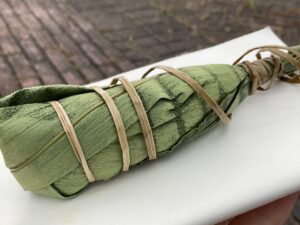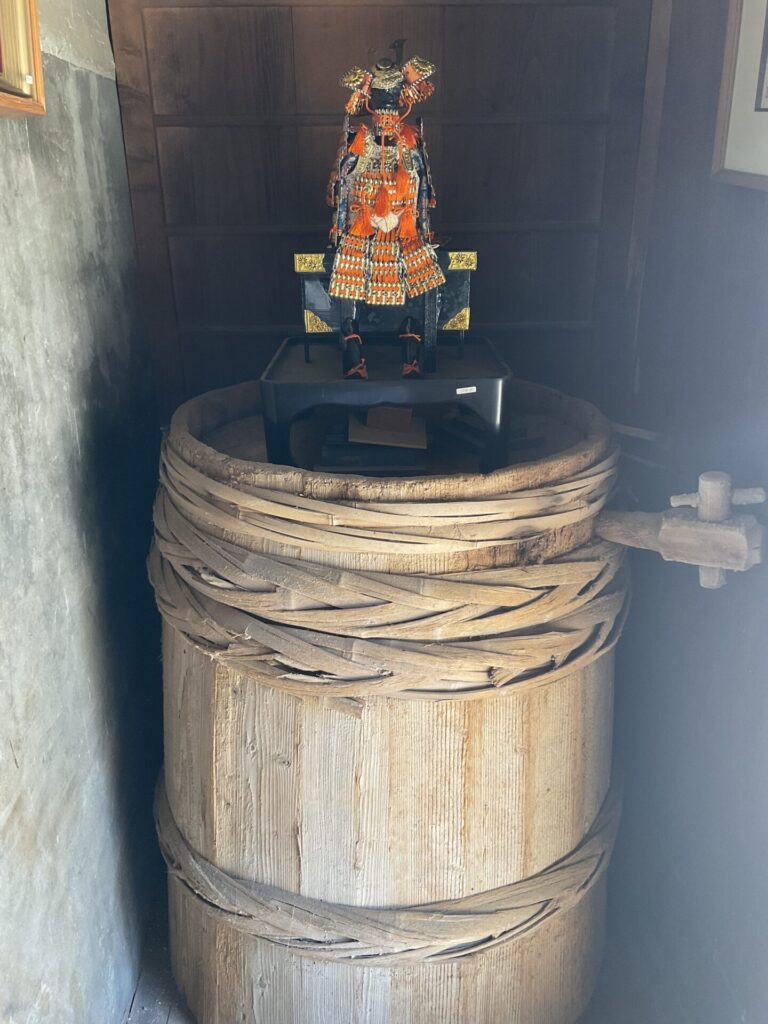
5月5日のお菓子、ちまき
The sweet for May 5th, Chimaki.
ちまきには、災いを避ける意味があるそうですね。5月といえば、昔は梅雨の時期、暑くなり始める上に雨も多く、病気が流行りやすかったようです。
Chimaki, a traditional Japanese sweet made from glutinous rice wrapped in bamboo leaves, is said to have a meaning of warding off misfortune or diseases. In May, which used to be the rainy season in the past, it often became hot and humid, and diseases were likely to spread with the increase in rainfall.
そこで、5月5日には、災いを払う行事がたくさんあるそうです。今では日本の子どもたちにもなじみがない行事もあります。そこで問題 次のうち、5月5日に行われていなかった行事はどれでしょう?
1 薬玉を飾る 2 菊を飾る 3 鎧を飾る 4 菖蒲風呂に入る
There are many events held on May 5th in Japan to ward off disasters. There are also some events that are not familiar to Japanese children today. Let’s have a quiz. Which of the following events were not traditionally held on May 5th in Japan?
1 Decorate with medicinal balls, 2. Decorate with chrysanthemums, 3. Display armor, 4. Take a bath with Japanese irises.
正解は、2 菊を飾る です。
1 薬玉は、薬草で綺麗な玉を作ることで、病を避けようとしたことから、だそうです。
3 鎧を飾る由来は諸説あるようですが、身を守ることに通じるそうです。
4 菖蒲風呂に入るは、薬草としても効果があり縁起も良い菖蒲の風呂に入ることで、病を避けるという意味があるそうです。
ちなみに、2 菊を飾る は、9月9日の行事です。
The correct answer is 2: Displaying chrysanthemum flowers.
1: Hanging medicinal balls was believed to ward off sickness by creating beautiful balls made of medicinal herbs.
3: Displaying armor has various theories, but it is believed to be related to protecting oneself.
4: Taking a bath with sweet flag (shobu) is believed to prevent illness and is also considered auspicious. By taking a bath with sweet flag, it is believed that one can ward off sickness.
Displaying chrysanthemum flowers is done on September 9th.



コメント